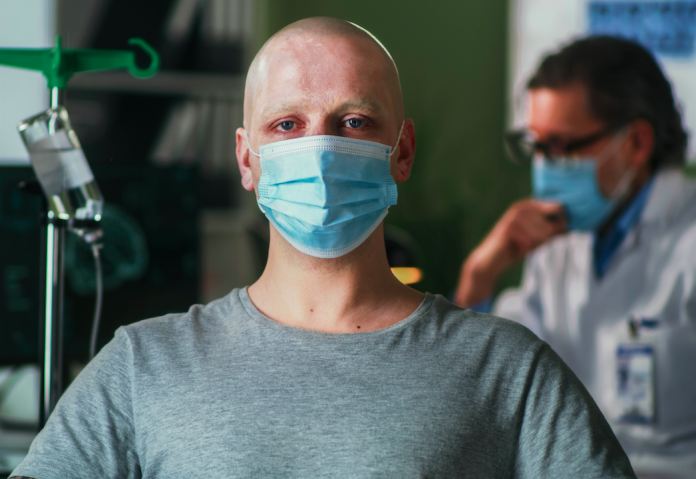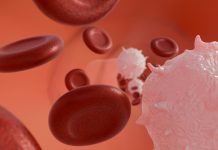Experts from the International Agency for Research on Cancer and the University of Molise chart the impact of the COVID-19 pandemic on cancer treatment
In our recent history, there have been three epidemics related to coronavirus infections: the Severe Acute Respiratory Syndrome (SARS-CoV); the Middle-East-Respiratory-Syndrome (MERS-CoV); and currently the SARS-CoV-2. While the SARS and MERS outbreaks were of pandemic potential, they were contained regionally. Contrarily, the ongoing COVID-19 pandemic with its scale poses a major challenge to healthcare systems globally. The challenges are bi-directional as healthcare systems have to strengthen the emergency and medium-term response to COVID-19 but also to maintain essential services for routine patient care.
Essential services, medicines provisions and equipment continuity must be maintained through this pandemic period in order to avoid an even wider healthcare impact. From that perspective, the pandemic crisis poses a greater threat to patients with chronic diseases (such as cancer) who are also considered as a highly vulnerable group.1 Specifically for cancer patients it is fundamental to both protect patients from potential contact with COVID-19 infected individuals, as well as to maintain some level of service within health facilities to prevent further deterioration of their individual condition(s).
Therefore, the community of cancer patients, cancer care providers and cancer researchers find themselves strongly impacted by the COVID-19 pandemic. This ongoing sanitary crisis is inevitably affecting the rate of cancer screening in the general population (with many national screening programmes postponed or scaled back in Europe), the speed of new cancer diagnosis that may lead to delayed diagnosis and subsequent treatment and has led to a significant reorganisation of cancer hospitals to prevent the COVID-19 infection of this population of patients at high risk of developing more acute COVID-19 infection. In addition, from the available scientific literature, it is evident that patients with cancer who develop COVID-19 have a higher probability of mortality when compared to the general population.2 Moreover, this COVID-19 pandemic is affecting cancer research financially and logistically introducing changes in cancer research conduct, strategies and priorities.
Turning guidelines into actionable knowledge
While efforts to cope and adjust to the emergency situation have been remarkable in many aspects, preparedness to this sanitary crisis could still be improved at different levels. To help manage the crisis and to achieve these objectives, recommendations were published by the WHO as well as by the European Society for Medical Oncology (EMSO) to be used as guidance for prioritising the various aspects of cancer care to mitigate the negative effects of the COVID-19 pandemic on the management of cancer patients.3 However, their implementation in the context of comprehensive cancer centres remains challenging, as they would have to be adapted to best fit local needs, knowing their complex mission around cancer care, research and education.4
It is, therefore, important to better understand, (i) how adjustments have been made by describing the measures for continuity of cancer care, research and education, (ii) how recommendations from the scientific/medical societies are perceived, applied and adapted so that (iii) the wider impact of COVID-19 on cancer patients becomes measurable and quantified. This becomes a particularly critical aspect as healthcare systems globally are gradually planning the gradual introduction of routine care and operations for when COVID-19 is brought under control.
Experiences from the clinics
In general, it can be stated that healthcare providers and clinics during the pandemic had to: (1) organise the COVID-19 emergency response, (2) maintain healthcare services continuity for their patients, (3) implement measures to prevent a potential spread of COVID-19 infection within healthcare units and (4) prepare a gradual return to services in the near future. Those decisions and actions were dependent on local settings, the local authorities and stakeholders, the particular facilities and resources available. The impressive number of resources on cancer and COVID-19 published thus far bear witness of the concern in the cancer community for the consequences of the crisis on the healthcare system, on patient wellbeing and the wider socioeconomic factors. Indicatively, over 6,400 manuscripts have been published between April 2020 and January 2021 on the subject of “Cancer and COVID-19” in the U.S. National Institutes of Health, National Library of Medicine – a major scientific reference point globally.
Additionally, the constant focus on COVID-19 has dramatically changed the emotional and social perception in the general population through this pandemic but also in the scientific community5. In particular, patients’ care remains driven by two phenomena: (i) anxiety for potential self-exposure by the individual patient and related avoidance of non-essential clinical services even in presence of symptoms judged as minimal or benign, and (ii) reorganisation and redirection of healthcare system priorities, creating potential delays in non-COVID-19 patient healthcare responses.
Therefore, it is fundamental to continue the efforts to guarantee the continuity of cancer patient care. While the information flow has been largely uninhibited during the pandemic, the monitoring of cancer patients is still warranted to appreciate the impact of COVID-19 on patient treatments, inform about treatments during the pandemic and investigate further how coronavirus infection influences cancer history. As such, the importance of giving priority to cancer patients in terms of receiving the vaccination has to be made clear as supported also by the National Comprehensive Cancer Network in 2021. Long term monitoring is needed as the impact of COVID-19 on cancer screening, diagnosis, treatment and outcomes might be still measured and assessed a long time after the COVID-19 pandemic.
References
- Desai A, Sachdeva S, Parekh T, Desai R. COVID-19 and Cancer: Lessons From a Pooled Meta-Analysis. JCO Global Oncology 2020 :6, 557-559.
- Saini KS, Tagliamento M, Lambertini M, et al. Mortality in patients with cancer and coronavirus disease 2019: A systematic review and pooled analysis of 52 studies. European Journal of Cancer. 2020 Nov 1;139:43-50.
- European Society for Medical Oncology (ESMO). Cancer Patient Management During the COVID-19 Pandemic. 2020. Available from: https://www.esmo.org/guidelines/cancer-patient-management-during-the-covid-19-pandemic.
- Di Lorenzo G, Buonerba L, Ingenito C, et al. Clinical characteristics of metastatic prostate cancer patients infected with COVID-19 in South Italy. Oncology. 2020;98(10):743-7.
- Ng KYY, Zhou S, Tan SH, et al. Understanding the Psychological Impact of COVID-19 Pandemic on Patients With Cancer, Their Caregivers, and Health Care Workers in Singapore. JCO Glob Oncol. 2020 Oct;6:1494-1509. doi: 10.1200/GO.20.00374.
Disclaimer
Where authors are identified as personnel of the International Agency for Research on Cancer/WHO, the authors alone are responsible for the views expressed in this article and they do not necessarily represent the decisions, policy or views of the International Agency for Research on Cancer/WHO.











